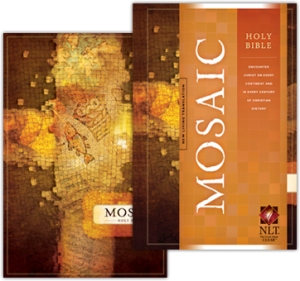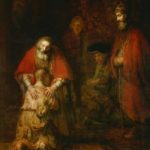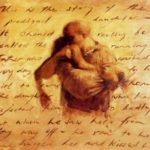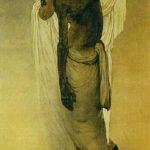HOLY BIBLE: MOSAIC is a beautiful newly published Bible, unlike any Bible you’ve ever seen…It has gorgeous, inspiring artwork from the 3rd to 21st centuries from every continent across the globe.It contains poignant, and thought-provoking writings from the 1st to 21st centuries from every continent, and branch of the Church around the world.Both artwork and writings follow the Church calendar throughout the year starting with Advent (Sunday, November 29, 2009).It has a Dictionary/Concordance, NLT word study system with Hebrew/ Greek dictionary. A beautiful layout of art with devotional content, companioning online community and content to add to each readers’ experience and and spiritual support, and Greek and Hebrew lexicons.I’m in the loop with HOLY BIBLE: MOSAIC because I contributed a small portion as a writer for this exciting project. And I’ll have some very big news to tell you next week, but I’m sworn to secrecy, for now!You can sign up for exclusive updates, including some big surprises Tyndale has in store, at this link. www.HolyBibleMosaic.com.
Category: Spirituality
Topics pertain in some way to the unseen realm of Reality, the inner world, or the Divine, most often in a Christian and ecumenical context with the assumption that all people are in reality, beings with and of spirit.
School Project with tough questions for the church
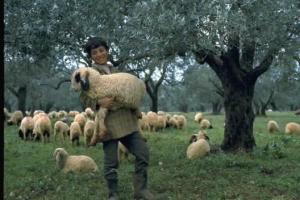 I have lots of questions rolling around in my mind right now because of school. My project is to interview 2 leaders from two ministries or churches to find out how they approach spiritual formation/education in their contexts and among their community of believers. The questions are penetrating. Here are just a few:
I have lots of questions rolling around in my mind right now because of school. My project is to interview 2 leaders from two ministries or churches to find out how they approach spiritual formation/education in their contexts and among their community of believers. The questions are penetrating. Here are just a few:
“In what ways are the sacraments given or experienced that allow for a time of repentance and receiving from God?”
“How is spiritual remembering practiced, and the spiritual disciplines conveyed and taught that will help others imitate the life of Jesus.”
“How well are people able to share their brokenness, (addictions, temptations, grief, etc.) and able to begin healing within the body of believers?”
“Are new believers provided with guides and mentors?”
“How is corporate prayer accomplished to engender brokenness, recompense, transformation, and worship?”
How might your church do with these tough questions? (anonymous posts are fine)
Why does embrace mean so much?
When I first saw this video below, I cried. [youtube=http://www.youtube.com/watch?v=vr3x_RRJdd4]
It showed me the power of offering connection and love. The largely untapped, healing power of embrace–which connotes acceptance–seems to be too absent today. The distance between us grows, even though technology has supposedly drawn us together.
Luke 15:20 “So he returned home to his father. And while he was still a long way off, his father saw him coming. Filled with love and compassion, he ran to his son, embraced him, and kissed him.”
If you would, please response here, and explain your feelings about embrace, or any reactions you had to this post, the video, or the artwork. Thank you.
An idea for plumbing deeper:
Your challenge-
Bring these pictures to mind the next time you pray, and speak about them to God, honestly. If you have fears, joy, sorrow, gratitude, or other feelings, express them, using this theme as a vehicle to interact in your next intimate time with the Lover of your soul.
Transforming Nebula
The Hubble telescope is operating again, and got gorgeous photos of the Minkowski 2-9, also called, the Butterfly Nebula. Quite gorgeous, right? It fills me with awe.
I thought this was a great symbol of transformation, process, and creation rolled up into an unfathomable, beautiful, and yes, nebulous package. We’re all works in progress. In the past, Hubble never capture this image so well, but through the corrected lens we are able to see the beauty of an organic wonder. I see the parallel for our lives in this. Correcting our perspective, can do wonders for our outlook on our lives, and progress too.
What do you think of this photo?
What transformation do you seek, ultimately?
Leave any comments you’d like.
My Top 5 Reasons/signs you may be burned out on church
1. You find yourself thinking up illnesses that would suffice for excuses for staying home. Sometimes you even invent names like Snufflititus or Schnozatigo: The serious redness and inflammation of the area beneath the nose from too much tissue rubbing. Rx Coffee, remote control, rest, snacks, and tissues with lotion built-in.
2. You suddenly realize how cool, smart, and savvy the early Sunday morning tv shows are, and feel like you might be getting a raw deal but missing them.
3. You feel deeply offended that your church doesn’t care too much that the coffee offered tastes something like armpit, and you start to identify this characteristic with an inherent spiritual problem of your congregation. (perhaps the misusing of the gift of hospitality)
4. You start to pick apart the pastor’s sermon with a graph, and two columns of hatch marks on your church bulletin, adding up the times he is substituting a self-aggrandizing story instead of using a true parable to teach a point.
5. You find getting tapped for nursery duty a welcomed relief, because you won’t really have to talk to anybody, watch a worship performance you won’t enjoy, or try to not yawn an ungodly amount of times as you try to get through a sermon the pastor must have downloaded from somewhere late Saturday night.
Okay, this was a purposefully whacky list. If you can relate to any of these internal excuses, signs, or avoidance qualities, in some sort of way, then maybe the experience of attending church has grown stale.
It’s normal to have spiritual slumps. It can’t be wise to think of walking with God as a continual emotional high, and when it’s not experienced as such, something is horribly wrong. Like any journey, there will be hills and valleys. Faithfulness demonstrated as a choice done continually, (rather than a feeling-based action) can really see us through times like this. God is always with us, whether we “feel” him or not.
However, I’ll make a different point. There is also a tendency to fall into a consumer mindset, and feel like church-going is like shopping, and picking out something you like. We probably all do it, to an extent. Have you ever walked out of the service on Sunday thinking, “That wasn’t really what I was hoping for,”? Yep. Unmet expectations are common. But, it doesn’t have to wreck the whole bit of it.
Church doesn’t have to delight us every time, and soothe us. Most times it won’t feed us, not in the deep ways we crave. Those times are often found in community that can plumb to greater depths, and do the harder work, but build the stronger bonds that make genuine growth possible. (Think small groups, or spiritual directors, spiritual mentors, and discipleship situations.)
Church isn’t just some way to get recharged for your week, and be poured into. But, have you noticed how easy it is to slip into that bare minimum, and consumerist outlook of it? I have. I’ve been guilty of it way too much.
It’s not about just an experience, nor is it just meant for worshiping God with others. We worship God all the time, whether we do it poorly and unawares, or we tune in and give him our whole selves. We are his creation, our lives lived are a form of worship, like it or not.
Church-going, and the whole of the spiritual walk, are about applying the gospel to our lives in every circumstance and situation, the whole way through. God’s grace and love came down. He draws us to him. He restores. It seems we co-opt and yield to his mighty, gracious work to changing us radically, to be more like him.
Sometimes it just comes down to sucking it up. Sometimes it means you have to change, not your local church.
Have you ever been burned out on church, like I have, at one time or another? What helped you?
Leave any kinds of comments you’d like.

